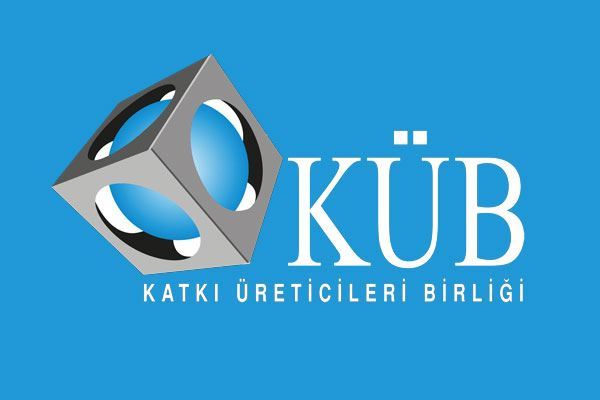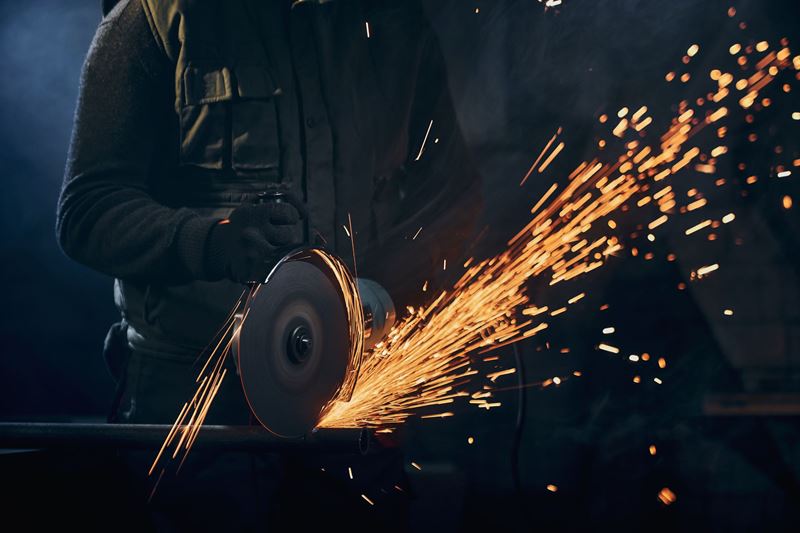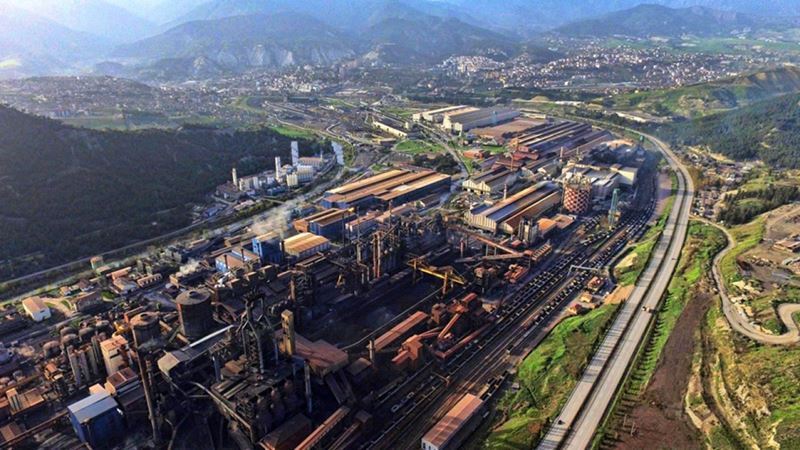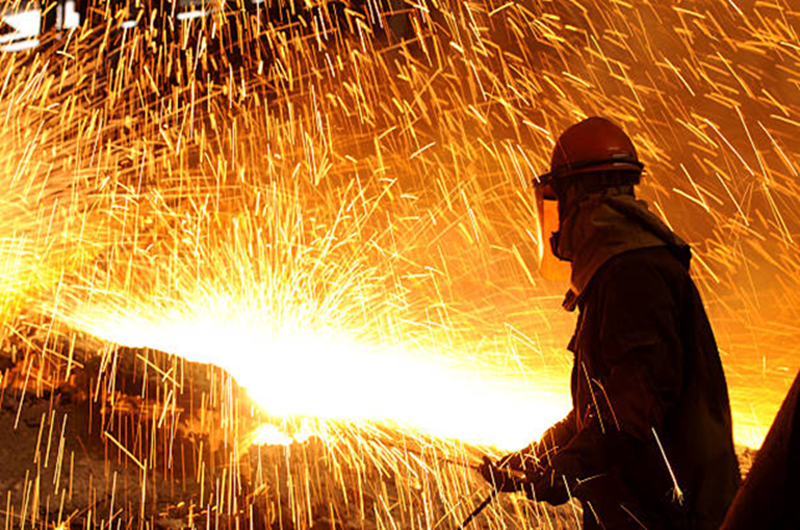Can you tell us about your association? What is your activities and contribution to the sector?
The Admixture Manufacturers Association (KÜB) is a non-governmental organization that is the only representative of the Concrete Admixture industry in Turkey, with its important services for the development of the industry by bringing together the manufacturers of concrete and mortar chemical additives and fiber manufacturers in Turkey under the umbrella of the association.1998 Since then, it has been providing and will continue to provide significant benefits to the sector. Turkey has an important market with many domestic and foreign companies in terms of Concrete Admixtures Production.
There are important companies under the umbrella of the KÜB. They represent the volume of this market at the level of 85 percent.
Members of our Association are in alphabetical order; AKKİM Kimya, CHRYSO-Kat Additives, FOSROC Construction Chemicals, İKSA Concrete Additives, KORDSA Teknik Tekstil A.Ş, LYKSOR Chemistry, MAPEI Construction Chemicals, MBS Master Builders Solution, POLYPROPYLENE Fiber Industry, POLİSAN Kimya, SİKA Construction Chemicals.
The Additive Manufacturers Association (KÜB) provides technical, economic and social guidance to all relevant persons and organizations in the production and conscious use of Chemical Additives in compliance with international quality standards.
While the steps that will create added value for the sector are increasing, KÜB continues to work together with the Federations and stakeholders of which it is a member in Turkey and abroad. We are active members of We also work with major umbrella organizations in the sector and make important collaborations.
As the EFCA representative, we are personally involved in the creation and revision of European standards in Concrete Admixtures.
Can you tell us about your collaborations with your members?
Our members are among the most important companies of the Construction Chemicals Industry. The association, taking into account the common needs of the producers under its roof, takes necessary initiatives with official authorities, professional and private organizations to solve their problems, and it provides benefits with its unity identity.
SPC is very active in its activities with experienced, researcher and innovative company representatives who voluntarily support the sector. If we give examples of the activities of our association;
We are involved in Standard preparation and standard revision studies within the Technical Committees of EFCA (European Concrete Additives Federation), of which we are a member.
We participate in the meetings held by EFCA with our representatives in the Technical/Environmental Committees and Boards of Directors, abroad and on other platforms.
We take part in statistical studies on the Concrete Admixture sector in Europe, which EFCA carries out with its member associations. As a result of these studies, we see that the Turkish market is the largest in Europe.
With the EFCA Model Environmental Product Declaration EPD (Environmental Product Declaration), member companies of SPC can transparently declare the environmental effects of the products they produce. We work for the benefit of nature with environmentally friendly products.
We participate in the Concrete and Concrete Components seminars held at universities under the organization of the Construction Products Manufacturers Federation (YÜF), of which we are a member, with the topics of "Concrete Additives and Fibers".
By measuring the pulse of our industry on a monthly basis, we produce sectoral contribution indices, which can reveal the activities of our companies and expectations for the upcoming period, and briefly shed light on the industry, as a result of a survey conducted with member companies.
Our members both sponsor and support the Laboratory Technicians Courses organized by THBB (Turkish Ready Mixed Concrete Association) by providing training in their businesses.
SPC is a pioneer in representing all its members by providing direct support to these trainings.
We take part in sectoral organizations such as congresses, seminars and fairs with our members under the umbrella of the Association and we will continue to take place.
Can you talk about the types of additives?
Chemical concrete additives; They are used to increase the workability and protection of the concrete by affecting the fresh and/or hardened concrete properties of the concrete, to facilitate pumping, placing, and to improve the early and final strength of the concrete.
Concrete admixture classes are defined according to the TS-EN 934-2 standard and it is requested to comply with this standard. Concrete additives are classified according to their ability to reduce the amount of water added to the concrete, their capacity to adjust and increase the amount of air in the concrete, the concrete setting times and their effects on water impermeability after the defined tests to be made.
Water Reducing / Plasticizer Additives (TS EN 934-2, Ç2)
High Water Reducing / Superplasticizer Additives (TS EN 934-2, Ç3.1 / Ç3.2)
Water Retention Additives (TS EN 934-2, Ç4)
Air immersive Additives (TS EN 934-2, S5)
Accelerating Additives (TS EN 934-2, LO6)
Hardening Accelerator Additive (TS EN 934-2, C7)
Retarding Additives (TS EN 934-2, 8)
Waterproofing Additives (TS EN 934-2, Ç9)
"It started with serious problems, especially on the raw material and logistics side"
Can you evaluate the sector in terms of quality and standards by talking about the problems of the sector? Are companies experiencing environmental challenges? How do you support companies in this regard?
In order to prevent unfair competition encountered in the sector from time to time, it is necessary to raise awareness of the consumer and make quality a necessity. It is necessary to constantly update the legislation and technical specifications regarding concrete applications and chemical additive technologies used in concrete in accordance with the renewed conditions in the sector. At this point, relevant government departments and construction industry associations need to work together to produce technical solutions on a common platform. It is necessary to seek solutions by establishing technical committees and to take the sector further with its stakeholders in this context.
On the other hand, a current classification and certification issue in terms of concrete additives is the Environmental Impact Statement. In this declaration, the effects of the products on the environment throughout their life cycle in the area where they are used are presented to the consumer in a transparent, measurable and comparable way. With this declaration, the environmental effects of concrete additives according to the raw materials they contain will be made public and recorded. According to the accepted model and calculation method created by the European Concrete Additives Federation (EFCA), of which we are a member, SPC member companies have the opportunity to publish the environmental impact declarations of the concrete and mortar additives they produce.
Can you evaluate the sector in Turkey and in the Global market?
According to EFCA (European Concrete Admixture Federation) data, Turkey is Europe's largest concrete and concrete admixture market by volume.
According to the data of 12 member countries of EFCA, including the leading countries in the construction and concrete market of Europe such as Germany, England, Spain, France and Italy, the concrete admixture market in Europe in 2020 is around 1 million tons in volume. Turkey is the largest representative of this market with roughly 450 thousand tons. In fact, this is a natural and expected ratio. Our country is the first ready mixed concrete market in Europe and the fourth in the world with its ready mixed concrete production volume.
Apart from this volumetric leadership, the Turkish construction and concrete industry has a voice and an active position in the sector in Europe with its innovations, manufacturing techniques and product technologies.
What are the expectations regarding the innovative work that will occur in the concrete and construction sector, both economically and technically, in the coming years? Can you share your insights on new applications and productions with our audience?
Concrete chemical admixture technologies will continue to provide technical, economic and environmental contributions to the concrete and construction industry in the future with scientific developments and innovations, and will also inspire some new applications and productions.
In particular, the rise of concrete classes, the increasing demand for special concrete production, and the increase in the use of special types of cement necessitated the admixture industry to develop itself in this direction. I think that we, as the industry, have a good knowledge of creating tailor-made solutions that will facilitate their applications especially for Ready-Mixed Concrete and Cement manufacturers by closely monitoring all the developments in the world.
However, the most important issue in the coming years will be sustainability and reducing CO2 emissions. We, as the additives industry, support products and solutions that will also bring benefits for the production of ready mixed concrete and cement, which are the end products.
Is there anything you want to add?
In the sector, 2021 started with serious problems, especially on the raw material and logistics side. In particular, there were both supply shortages and serious cost increases in all raw material inputs of construction chemicals. It is predicted that the problem will continue in the second half of the year.
Interview: Ekin Dilan Özdogan
Posted by Nihal Ozken









Comments
No comment yet.